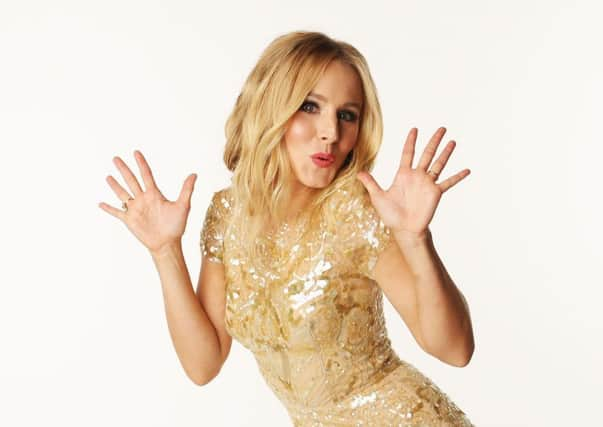Jane Bradley: Where do you stand on clapping vs jazz hands debate?


I hate clapping. Organised clapping, at least. My worst nightmare is that bit at the end of a musical or theatre show when the cast decides to perform one of the songs again as an encore and everyone has to stand up and rhythmically pat their hands together in time to the music, while pretending they are enjoying it.
For some reason, I just find it incredibly socially awkward. It does not show a spontaneous appreciation of anything, it doesn’t allow you to feel like you are joining in with the performance in any way. It merely makes me want to chew off my own elbow and sink down into my tippy-up seat until it is all over.
Advertisement
Hide AdAdvertisement
Hide AdYet even I, as a confirmed clapping hater, find Manchester University union’s recent decision to discourage the practice strange.
The student union last week voted to replace clapping at any official events with the British Sign Language equivalent – which is essentially “jazz hands” – or what some people seem to be calling “spirit fingers”. Meanwhile, all other student societies and organisations will be encouraged to do the same.
The idea, the head of the student union said, was to “avoid triggering anxiety and improve accessibility” for students who may have autism, sensory issues or deafness.
There is, of course, a long history to showing appreciation after a performance or debate and the fact that the practice is used in some form, worldwide, suggests that it is an inate reaction. Some cultures use clapping to demonstrate their enjoyment of or agreement with something, while others stamp feet, shout, whistle or wave things.
In Roman times, it is said that Emperor Aurelian substituted the waving of napkins that he had distributed to the Roman people for the previously used technique of “toga flapping” to express appreciation, while Roman audience members were instructed when to chant their approval of a play – only after the chief actor called out “Valete et plaudite!”, which gave them permission to start shouting.
The practice of politely patting our palms together is, to be honest, a very British way of doing things. It is controlled, fairly quiet in the big scheme of things and doesn’t require us to let go, emotionally speaking.
Yet other people have also tried to do what they could to limit clapping. Richard Wagner famously stopped writing breaks into his operas, instead allowing the music to flow between movements, because he so detested hearing a round of applause after a section of music came to an end.
Golf tournaments have their own special form of clapping known as a “golf clap” in a bid to not to disturb other golfers, who may be in the process of attempting a shot.
Advertisement
Hide AdAdvertisement
Hide AdMeanwhile, Manchester University student union’s idea has been mooted among student groups for some years now. In 2015, a women’s event run by the National Union of Students asked delegates to use jazz hands instead of clapping as some people there had said it was causing them concern.
Subsequently, the general secretary of the London School of Economics Students’ Union revealed that the practice was used throughout the National Union of Students in place of clapping as a way to “show appreciation of someone’s point without interrupting or causing disturbance”.
There are some concrete examples of situations where people have been adversely affected by clapping. One, which I read on Twitter, was the story of an autistic young man who had been hospitalised by a panic attack because his friends had cheered, clapped and whooped when he was taking part in a race. Obviously, this must have been very distressing for him – and his friends and family.
Yet, there are plenty of things which distress different people for different reasons, and we can’t avoid all of them.
I have a friend who hates coming near my house because quite a few of my neighbours have cats (we don’t have one ourselves). She can have a full-blown panic attack if she comes too close to a moggie in the street and worries for days about how she can get out of a social invitation if she discovers that her host has a previously undeclared pet puss. It sounds funny, but it’s not a laughing matter for her. It causes huge anxiety. Yet she accepts that she cannot stop the population of the world from owning pet cats.
I have a couple of other friends who suffer from coeliac disease, which means they can’t eat gluten – with dire, potentially long-term consequences if they do so. They spend their days checking and re-checking packaging, worrying about if restaurants which claim to be gluten-free actually operate a gluten-free area of their kitchens. It is stressful. Yet nobody has suggested that we should remove gluten entirely from society.
It is sad – and difficult – for individuals who have a condition or mental health issue that involves an ordinary activity.
Yet, even if we replace clapping with jazz hands the world over, there are still likely to be situations where sudden loud noises occur. Roadworks while walking down the street; a car engine backfiring. We cannot eradicate all anxiety or health triggers, no matter how kind it would be to try to do so.
